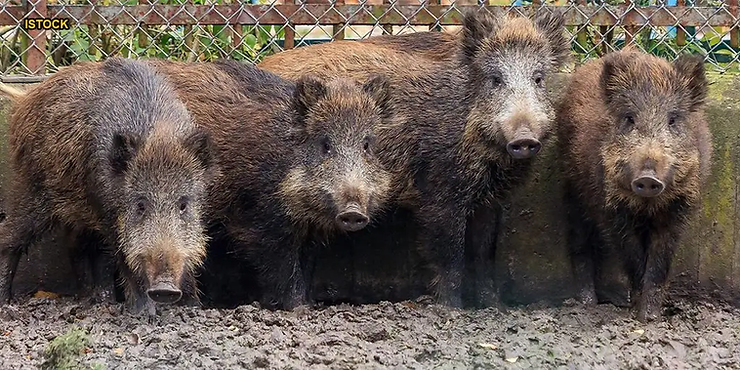By: Alex Yang
In Rome, wild boars have caused chaos in Italy’s capital over the past ten years, feeding on garbage, disrupting traffic, and even encroaching on the Vatican. These animals also inspire vastly contrasting public opinions, while some see them as a sign of urban decay, while others just see them as cute piglets.
In recent months, Italian authorities have become concerned that the boars could spread a disease called African swine fever. A disease that, although harmless to humans and pets, is deadly to commercially raised pigs, a sector that supports over 100,000 jobs in Rome. Fear of this virus has caused many countries such as China to even ban bans on Italian exported pork.
The threat to the pork industry is so dramatic that at the end of May, farmers across the country even held protests to call for a government response to the growing issue. Farmers protested in Rome wearing boar masks and crouched in imitation of the boars chanted: “The boar needs to be stopped!”
The pig population in Europe has grown significantly in the past couple of decades because of a variety of factors, including a combination of high reproduction rates and not enough large predators.
A government task force created back in March has plans to reduce the boar population by 50 percent after carcasses infected with the disease were found in Italy this year. But this solution is controversial. “I don’t see the eradication of the disease as a possibility unless you bring about a strong reduction of the [boar] population,” says expert Angelo Ferrari.
This is shown more because when some boars have been killed many still reproduce and even keep moving deeper. After all, vaccines failed, the plan in Rome is to let the virus make its way through the boar population in a “red zone” near the center of the city sealed off by special nets and gates.
Along with this, there are many “authorized hunters” allowed to start killing the boars en masse. The reaction to the solution has been mixed though. “Killing them should only be a last resort,” says Roberto Vecchio, head of a local anti-hunting league.
This issue poses a huge problem to one of the largest industries in the world. Not fixing it could see the death of the industry in Europe. But there doesn’t seem to be a solution that everyone can agree on.
Link:











